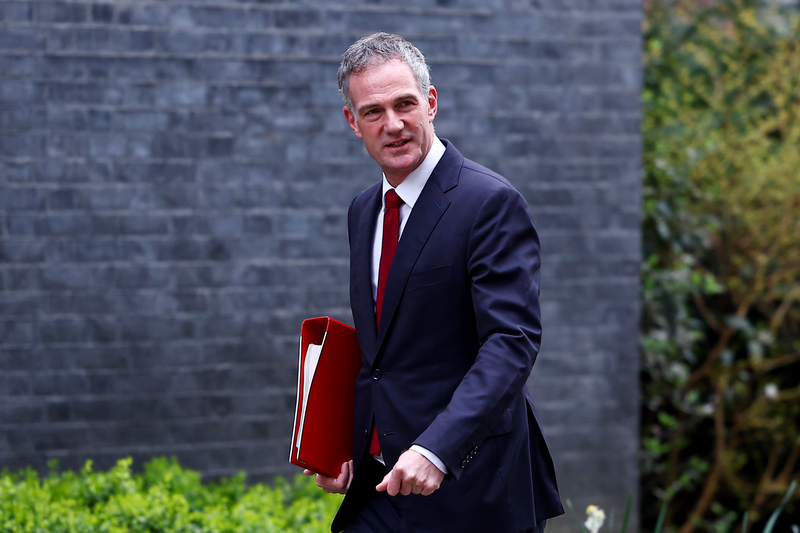Then-IBM CEO Ginni Rometty was a feature interview in the July-August 2017 edition of Harvard Business Review. She was asked to fast-forward a few years and explain what Watson – the famous Jeopardy!-winning supercomputer, named after the organization’s founder and first CEO, Thomas J. Watson – will be doing that will “amaze humanity”.
“Our moon shot is bringing world-class healthcare to every corner of the world,” started Rometty, who stepped down in 2020 after nearly 40 years at IBM and was replaced by Arvind Krishna. “Some of that is already happening,” she continued.
Notably, the first commercial application of Watson – which combines artificial intelligence and sophisticated analytical software for optimal performance as a question-answering machine – in February 2013 was for utilization management decisions in lung cancer treatment at Memorial Sloan Kettering Cancer Center, New York City.
Rolled out in China and India
Rometty pointed out that, four years later, Watson was being trained by the best cancer centers globally and rolled out across hundreds of hospitals in China and India. “Some of those areas have just one oncologist for maybe 1,600 patients,” she said. “People in those regions have had no chance of getting world-class healthcare. Now they can, with Watson as an oncology adviser, assisting doctors with decision making. And this is just the start.”
The “moon shot” came crashing back to earth earlier this year. In late January, news spread that IBM had sold the healthcare data and analytics assets from its Watson Health business to Francisco Partners, an American private equity firm focused exclusively on investments in technology and technology-enabled services businesses.
A press release revealed the assets acquired by Francisco Partners also include products such as Health Insights, MarketScan, Clinical Development, Social Program Management, Micromedex, and imaging software offerings. The statement added: “Under the terms of the agreement, the current management team will continue in similar roles in the new standalone company, serving existing clients in life sciences, provider, imaging, payer and employer, and government health and human services sectors.”
“We have followed IBM’s journey in healthcare data and analytics for a number of years and have a deep appreciation for its portfolio of innovative healthcare products.”
Ezra Perlman, Co-President, Francisco Partners
Meanwhile, Ezra Perlman, Co-President at Francisco Partners, which has invested in more than 400 technology companies in just over 20 years, commented: “We have followed IBM’s journey in healthcare data and analytics for a number of years and have a deep appreciation for its portfolio of innovative healthcare products. IBM built a market-leading team and provides its customers with mission-critical products and outstanding service.”
Justin Chen, principal at Francisco Partners, added: “Partnering with corporations to execute divisional carve-outs has been a core focus of Francisco Partners. We look forward to supporting the talented employees and management team, helping the standalone company focus on growth opportunities to realize its full potential, and delivering enhanced value to customers and partners.”
Billion-dollar ballpark
The deal’s price has not been disclosed publicly yet, and IBM sources have kept quiet for obvious reasons – mainly to save face. At the start of January, Axios had previously reported that the organization was looking for something in the $1bn ballpark, noting that IBM first explored selling off the Watson Health division in early 2021.
Axios’ sources appear to have been well placed, given that Bloomberg stated: “The value of the assets being sold, which include extensive and wide-ranging data sets and products, and image software offerings, is more than $1bn, according to people familiar with the plans.”
“The value of the assets being sold, which include extensive and wide-ranging data sets and products, and image software offerings, is more than $1bn, according to people familiar with the plans.”
Bloomberg
The Bloomberg article went on to expose the poor condition of Watson Health. “Even after spending roughly $4 billion in acquisitions to prop up the initiative, [it] hasn’t delivered the kind of progress IBM initially envisioned and the unit wasn’t profitable,” it stated.
Krishna indicated that he would be scaling back IBM’s once-lofty ambitions in healthcare in an interview with Axios and HBO last year. “Healthcare always is going to turn out to be more subtle, as well as more regulated for the right reasons, than it is in other areas,” he said. “And, to me, that’s natural. It is a decision that may impact somebody’s life or death. You [have] got to be more careful. So in healthcare, it turns out maybe we were too optimistic.”
Sale confirmed
When the sale was confirmed, commentators, such as TechCrunch’s Enterprise Reporter, Ron Miller, speculated why IBM was “running away from the healthcare vertical just as it seems to be heating up, and for such a low price.”
Could it be because rivals had stolen a march on IBM in the healthcare industry, or was the organization concerned about the increasing regulatory risks to which the CEO alluded? “Just last month,” wrote Miller in January, “Oracle spent $28 billion to buy digital health records company Cerner. Last spring, Microsoft spent close to $20 billion to buy Nuance, which is used heavily in the medical industry, boasting 10,000 healthcare customers. That’s huge money, suggesting that enterprise companies are looking to embrace the healthcare vertical and willing to spend big bucks to do it.”
In early December, IBM invited the UK technology media to an event at the highest 24-hour restaurant in London, Duck & Waffle. While speakers invited journalists to feast on the company’s latest innovations and plans for 2022, looking back, perhaps there was a tasty hint of IBM’s strategy that led to the sale of Watson Health’s assets.
“IBM is a complex organization. IBM is known to be a complex organization. And that is really something we want to simplify in terms of our operating model.”
Rahul Kalia, IBM Consulting Managing Partner, UK and Ireland
Rahul Kalia, IBM Consulting’s Managing Partner in the UK and Ireland, stood up from his lunch to address the room. “Our thinking and themes have been around three key areas,” he said. “Number one is simplification. IBM is a complex organization. IBM is known to be a complex organization. And that is really something we want to simplify in terms of our operating model.”
Holger Mueller, VP and Principal Analyst for Constellation Research, believes the organization’s priorities changed when Krishna took the helm. “IBM is really focusing on its hybrid cloud strategy,” he told TechCrunch’s Miller. “In the process it is trying to get rid of all assets that divert attention and capital, as well as carrying the risk of reputational damage. Watson Health certainly qualifies for all three, so it comes as no surprise that IBM may divest the unit.”
Enhanced investment
Tom Rosamilia, Senior Vice President at IBM Software, toed the company line when the Watson Health sell-off was confirmed. “IBM remains committed to Watson, our broader AI business, and to the clients and partners we support in healthcare IT,” he said. “Through this transaction, Francisco Partners acquires data and analytics assets that will benefit from the enhanced investment and expertise of a healthcare industry-focused portfolio.”
IBM’s loss is Francisco Partners’ gain. The private equity company now has more than $30bn in assets under management, and extensive experience in healthcare technology. The Watson Health deal is part of a clear pattern, and if it pays off it could prove very valuable. The organization’s healthcare investments have focused on companies that are using technology to provide innovative products and solutions to the healthcare ecosystem, including patients, providers, payers, pharma, life sciences, and governments.
So while Watson Health suffered latterly at IBM, the hope is that this sale will give it a new lease of life – and that’s good news for the future of healthcare and, ultimately, humanity.












